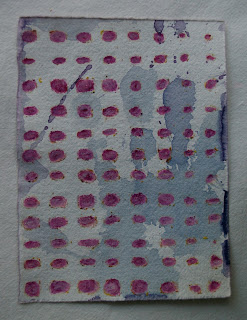http://en.wikipedia.org/wiki/Saturday
 |
| Saturnus, Caravaggio, 16th c. |
Origins in antiquity
The weekday heptagram, i.e. the association of the days of the seven-day week with the seven classical planets, probably dates to the Hellenistic period. Between the 1st and 3rd centuries, the Roman Empire gradually replaced the eight day Roman nundinal cycle with the seven-day week. The astrological order of the days was explained by Vettius Valens and Dio Cassius (and Chaucer gave the same explanation in his Treatise on the Astrolabe). According to these authors, it was a principle of astrology that the heavenly bodies presided, in succession, over the hours of the day. The association of the weekdays with the respective deities is thus indirect, the days are named for the planets, which were in turn named for the deities.
For Jews, the seventh day of the week, known as
Shabbat, stretches from sundown Friday to sundown Saturday and is the day of rest. Roman Catholic and Eastern Orthodox churches distinguish between Saturday (Sabbath) and the Lord's Day (Sunday). Quakers traditionally refer to Saturday as "Seventh Day", eschewing the "pagan" origin of the name. In Islamic countries, Fridays are considered as the last day of the week and are holidays along with Thursdays; Saturday is called Sabt (cognate to Sabbath) and it is the first day of the week in many Arabic countries.
In the Eastern Orthodox Church Saturdays are days on which the Theotokos (Mother of God) and All Saints are commemorated, The day is also a general day of prayer for the dead, because it was on a Saturday that Jesus lay dead in the
tomb. The Octoechos contains hymns on these themes, arranged in an eight-week cycle, that are chanted on Saturdays throughout the year. At the end of services on Saturday, the
dismissal begins with the words: "May Christ our True God, through the intercessions of his most-pure Mother, of the holy, glorious and right victorious Martyrs, of our reverend and God-bearing Fathers…". For the Orthodox, Saturday—with the sole exception of
Holy Saturday–is never a strict
fast day. When a Saturday falls during one of the fasting seasons (Great Lent, Nativity Fast, Apostles' Fast, Dormition Fast) the fasting rules are always lessened to an extent. The
Great Feast of the Exaltation of the Cross and the Beheading of St. John the Baptist are normally observed as strict fast days, but if they fall on a Saturday or Sunday, the fast is lessened.
Name and associations in European cultures
In
Scandinavian countries, Saturday is called lördag, "lørdag," or laurdag, the name being derived from the old word laugr/laug (hence Icelandic name Laugardagur), meaning bath, thus Lördag equates to bath-day. This is due to the
Viking practice of bathing on Saturdays.
Today, Saturday is officially called Samstag in all German-speaking countries, but there it has two names in modern
Standard German. Samstag is always used in Austria, Liechtenstein, and the German speaking part of Switzerland, and generally used in southern and western Germany. It derives from Old High German sambaztac, which itself derives from
Greek Σάββατο, and this Greek word derives from Hebrew שבת (Shabbat). However, the current German word for Sabbath is Sabbat. The second name for Saturday in German is Sonnabend, which derives from Old High German sunnunaband, and is closely related to the Old English word
sunnanæfen. It means literally "Sun eve", i.e., "The day before Sunday".
Sonnabend is generally used in northern and eastern Germany, and was also the official name for Saturday in
East Germany. In the Westphalian dialects of Low Saxon, in East Frisian Low Saxon and in the Saterland Frisian language, Saturday is called Satertag, also akin to Dutch Zaterdag, which has the same linguistic roots as the English word Saturday. In West Frisian there are also two words for Saturday. In Wood Frisian it is
saterdei and in Clay Frisian it is
sneon, derived from
snjoen, a combination of Old Frisian
sunne, meaning sun and joen, meaning eve.
All Slavic languages derive their name for Saturday from the name for Sabbath: (Czech/Slovak/Polish/Slovene:
sobota; Russian:
суббота subbota, Serbian/Ukrainian
субота subota).
A similar numbering trend is also exhibited by the
Baltic languages.
Similarly, the Romance languages follow the
Greek usage, so that their word for "Saturday" is also a variation on "Sabbath": the Italian is sabato, the French is samedi, the Spanish and Portuguese is sábado and the Romanian is
sâmbătă.
Reception outside of Europe
The modern
Maori name for it, Rahoroi, literally means "washing-day" - a vestige of early colonized life when Māori converts would set aside time on the Saturday to wash their whites for Church on Sunday. A common alternative Māori name for Saturday is the transliteration Hatarei. For other languages, see
Days of the week Planetary table.
The Chinese-based Korean word for Saturday is 토요일 (To-Yo-Il [meaning: Earth - day]) from the Chinese character 土 meaning Earth, or Ground but more significantly makes reference to 토성 (To-Sung 土星) which means Saturn.
Position in the week
The international standard
ISO 8601 sets Saturday as the sixth day of the week. The three Abrahamic religions, via their original languages, regard Saturday as the seventh day of the week (Judaism via Hebrew, Christianity via Ecclesiastical Latin, and Islam via Arabic). As a result of the Julian calendar's international acceptance, many contemporary followers of the Abrahamic religions have associated Saturday with their "seventh day". As a result, many refused the ISO 8601 standards and continue to use Saturday as their "seventh day". This is concordant with the European
Pagan tradition, which named the days of the week after the seven Classical planets (in order Sun, Moon, Mars, Mercury, Jupiter, Venus, Saturn), naming the first day of the week for the Sun, perceived as most important, and moving to those perceived as lesser.
Astrology
Saturday is associated with the planet Saturn and symbolized by that planet's symbol
♄.

























